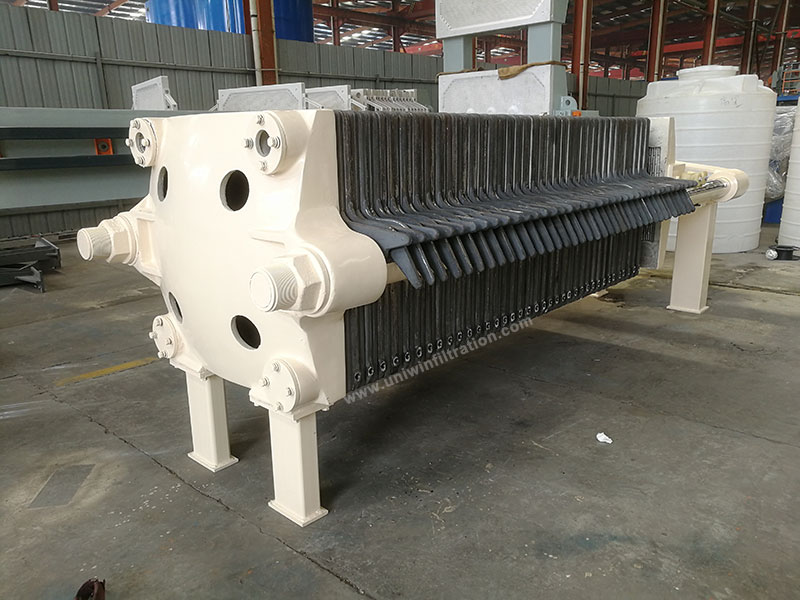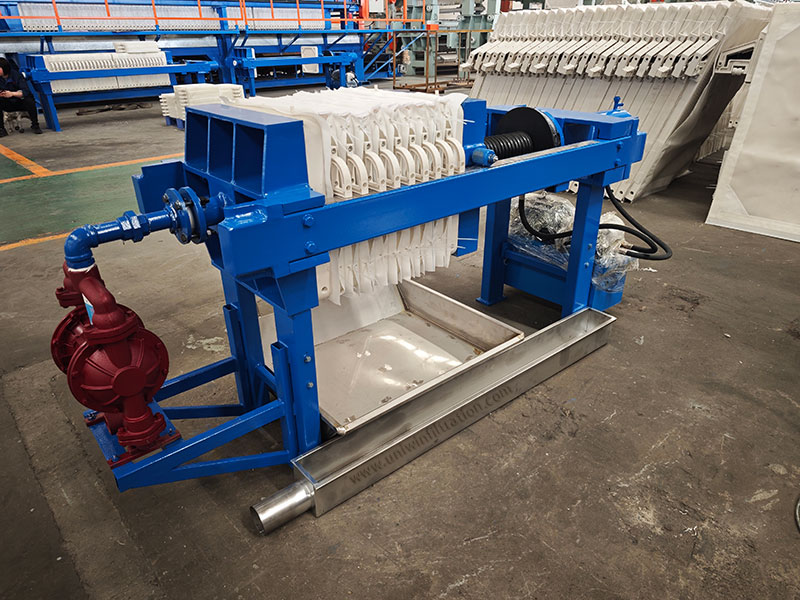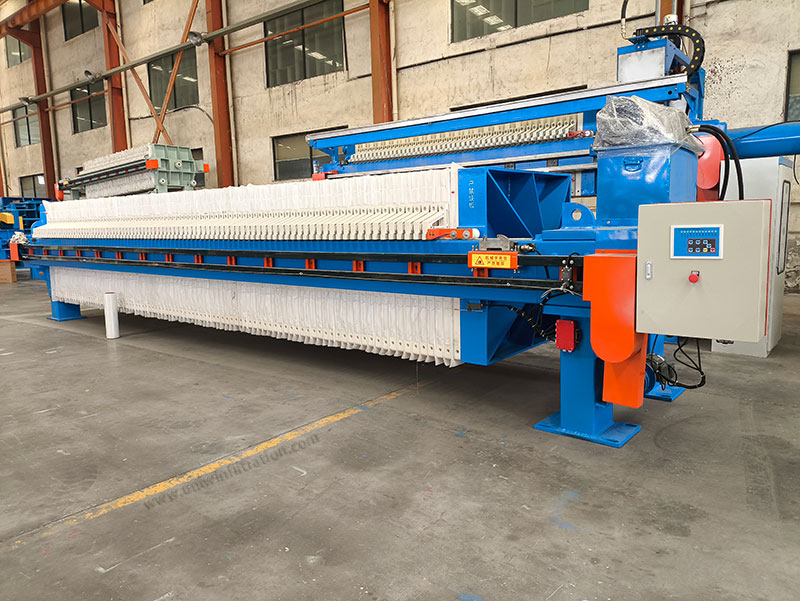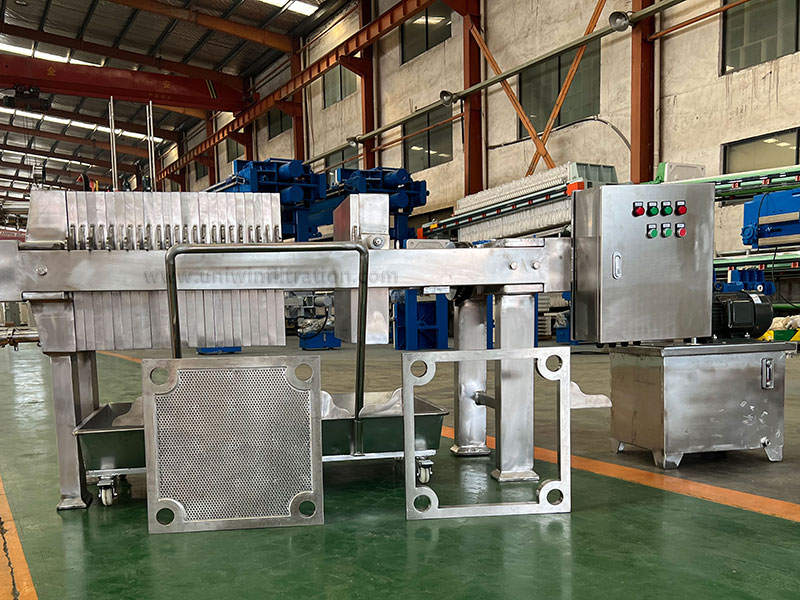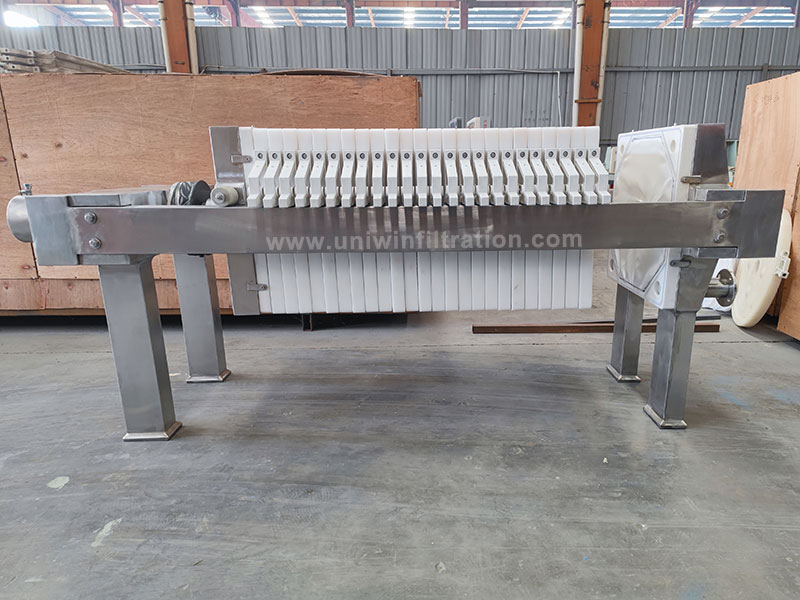Cast Iron Filter Press
The cast iron filter press is a common solid-liquid separation device, primarily used for solid-liquid separation in various industrial wastewater treatment, sludge dewatering, and mineral extraction processes. Its core component, the filter plate, is made of high-strength cast iron, offering excellent pressure and corrosion resistance, making it particularly suitable for high-temperature, high-pressure, or highly corrosive environments.
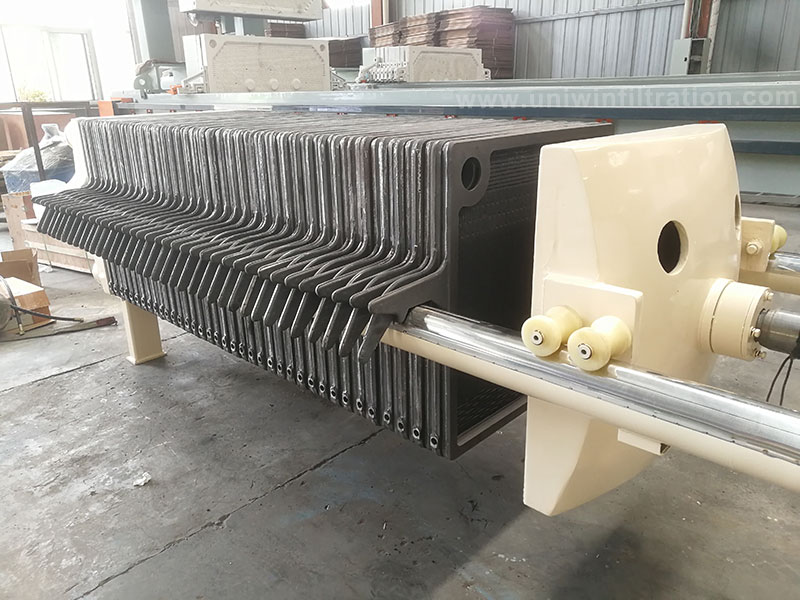
What is a Cast Iron Filter Press?
A cast iron filter press is a plate and frame type filter press characterized by its filter plates made of cast iron. This type of equipment boasts a simple and reliable structure, capable of withstanding higher operating pressures. It is typically used to process materials with larger particles, high viscosity, or less corrosive properties.
Unique Advantages of Cast Iron Filter Presses
Higher pressure capacity
The mechanical strength of cast iron is far superior to that of plastic (polypropylene), making it less susceptible to deformation or cracking under high pressure. Cast iron filter presses can operate stably and continuously at filtration pressures between 0.6–1.2 MPa, with some reinforced models capable of even higher pressures.
They offer significant advantages in applications requiring high-pressure dewatering, such as mine tailings and metallurgical sludge.
Excellent high-temperature resistance
Cast iron filter plates can withstand filtrate temperatures up to approximately 150°C, while ordinary plastic filter plates can only withstand temperatures of 70–90°C. They are suitable for processing hot water, hot slurries, or high-temperature wastewater.
In the metallurgical, ceramic, and chemical industries, dehydrating high-temperature materials is difficult for ordinary filter presses.
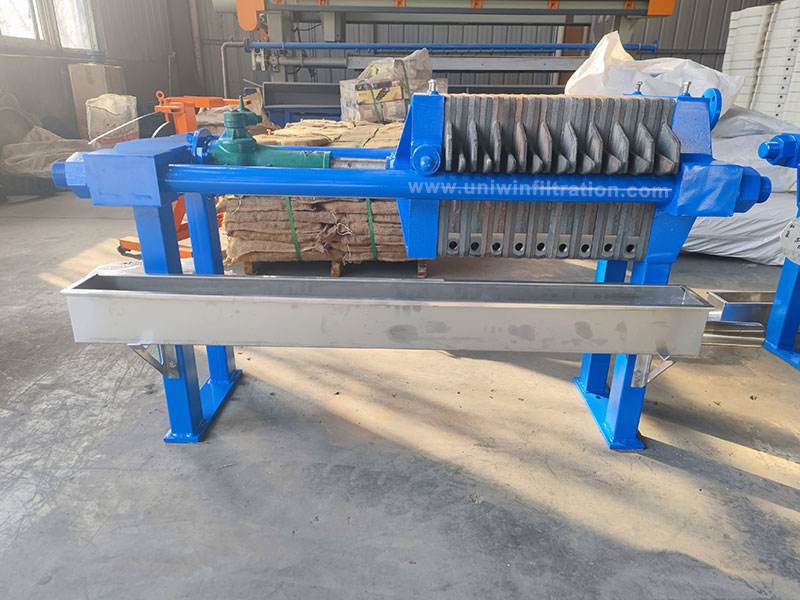
Better wear resistance
Cast iron filter plates are less susceptible to scratches and wear when handling materials containing hard particles and are highly abrasive.
Ordinary PP filter plates are prone to scratches and wear in these conditions, leading to cake leakage or plate failure.
Long service life
The cast iron structure is sturdy, and the filter plates are not prone to aging. Plastic filter plates are susceptible to aging, deformation, and cracking when subjected to prolonged pressure, heat, or chemical exposure.
In some high-load plants, cast-iron filter presses often provide years of continuous service with minimal maintenance.
Adaptable to complex working conditions
Suitable for working conditions involving high concentrations, high temperatures, high pressures, or the presence of hard particles. Conventional filter presses are susceptible to damage under these conditions, limiting their use.
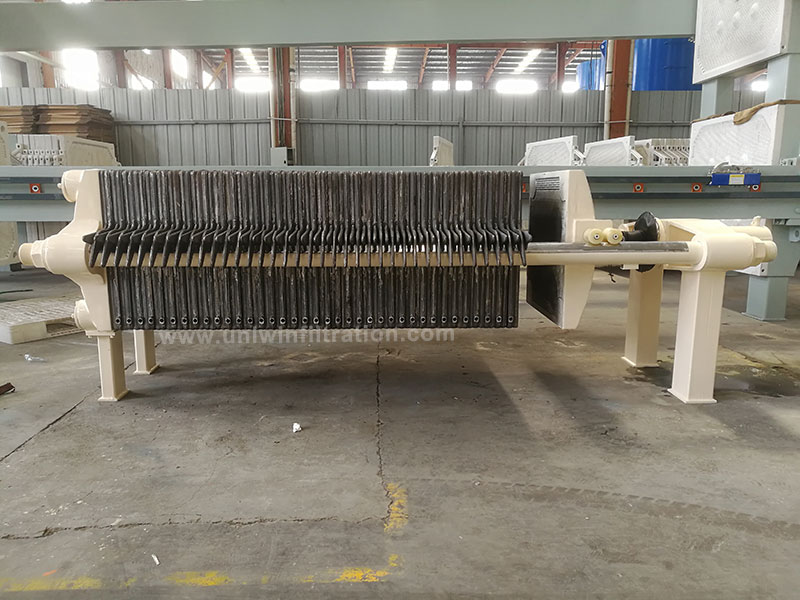
Applications of Cast Iron Filter Presses
- Mine tailings dewatering: Suitable for handling highly concentrated, abrasive slurries.
- Metallurgical industry: Suitable for sludge treatment in steel mills.
- Ceramic industry: Suitable for sludge dewatering and recovery.
- Chemical industry: Suitable for handling less corrosive chemical mixtures.
- Municipal sludge treatment: Suitable for dewatering high-temperature sludge.
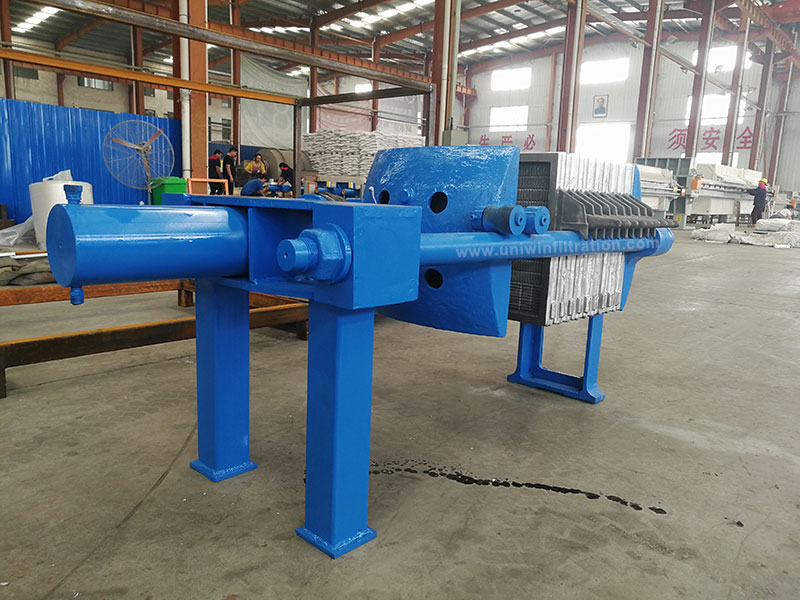
Precautions for Use
- Avoid using highly corrosive acidic and alkaline media, as cast iron has a weak resistance to strong acids and alkalis.
- Regularly inspect the filter plates for cracks. Cracks in the filter plates can easily cause equipment failure under high-pressure operation.
- Select the appropriate filter press specifications based on the processing volume, filtrate properties, temperature, and other parameters.
- Ensure sealing performance. The compression system must be reliable; otherwise, leakage is likely to occur.

